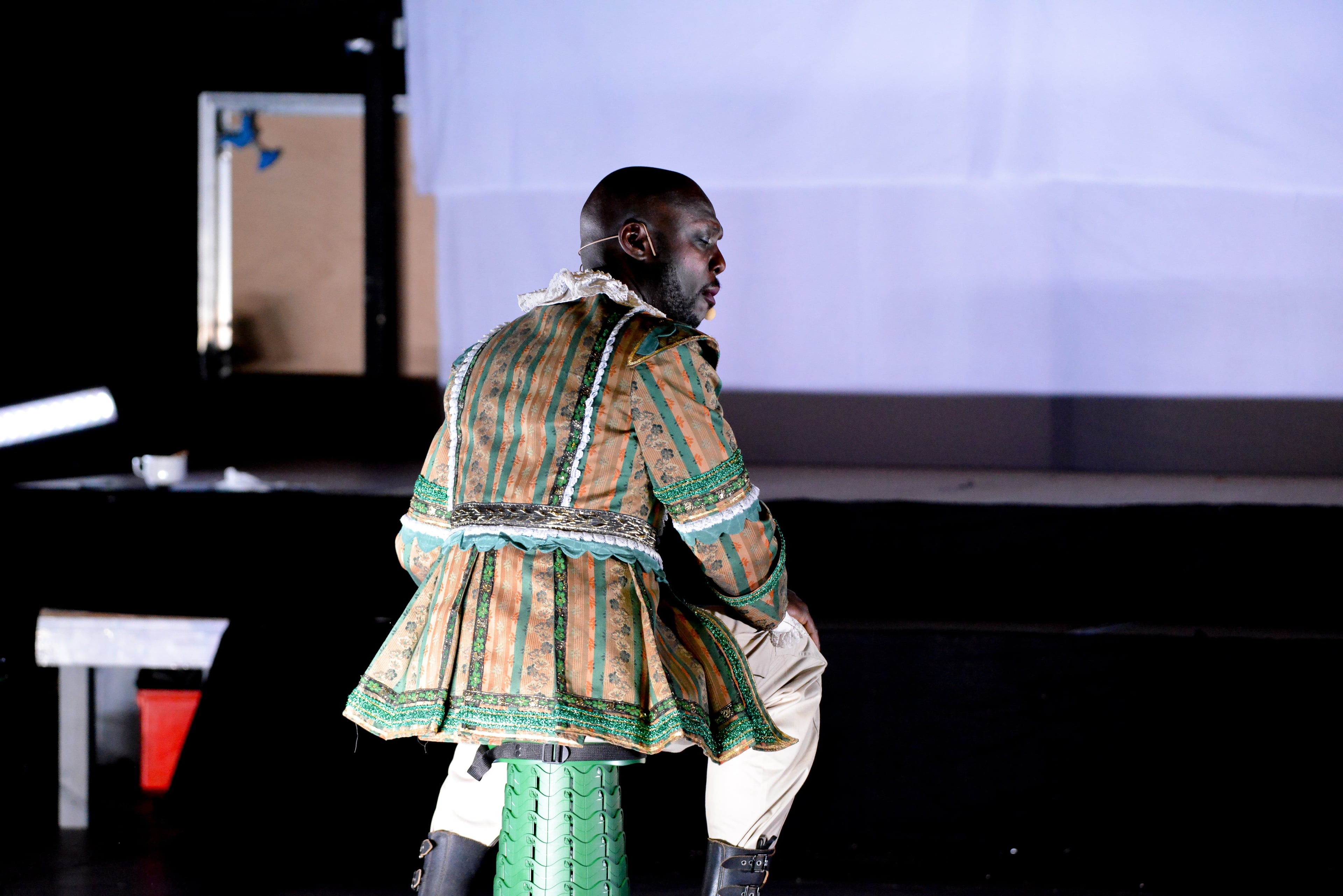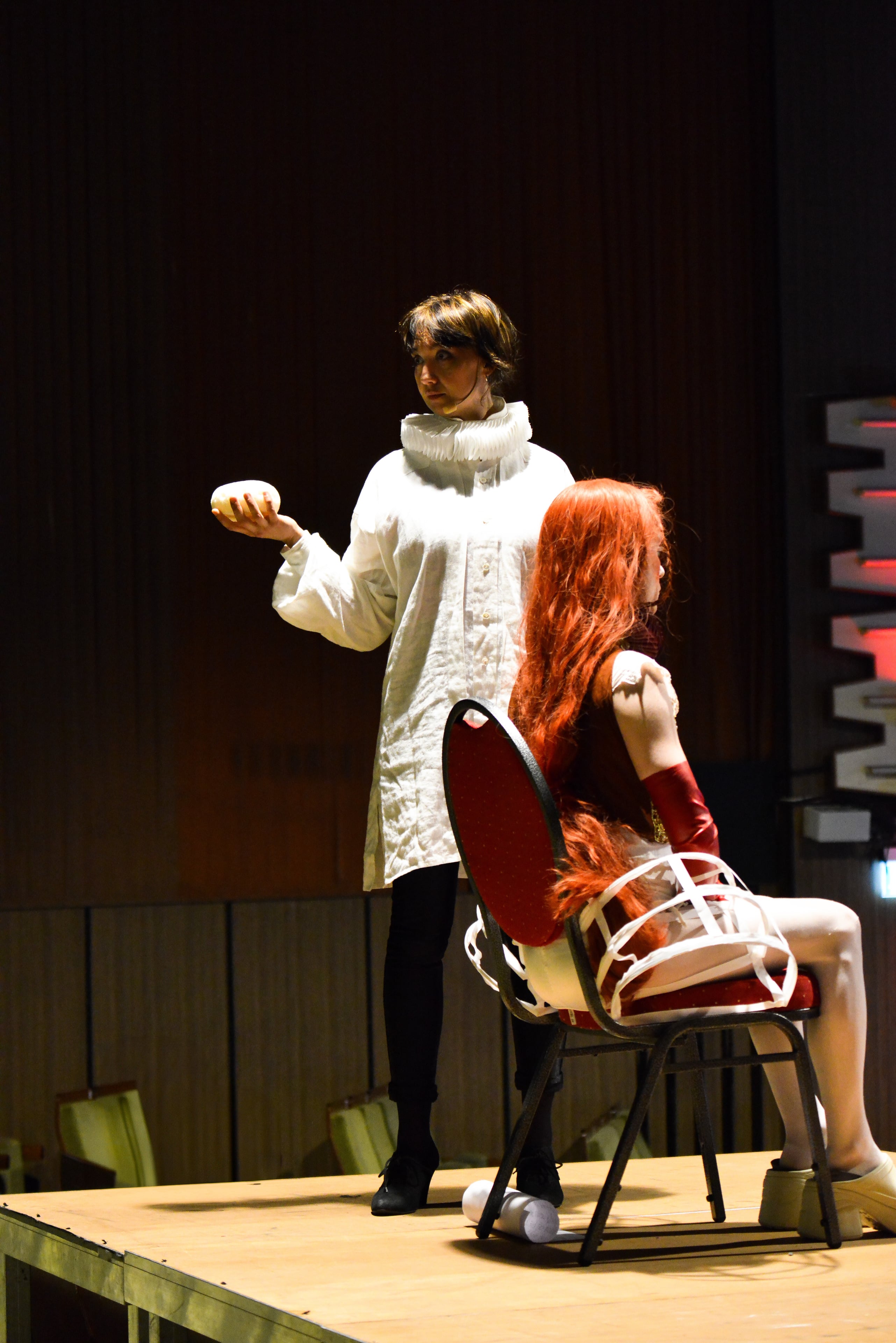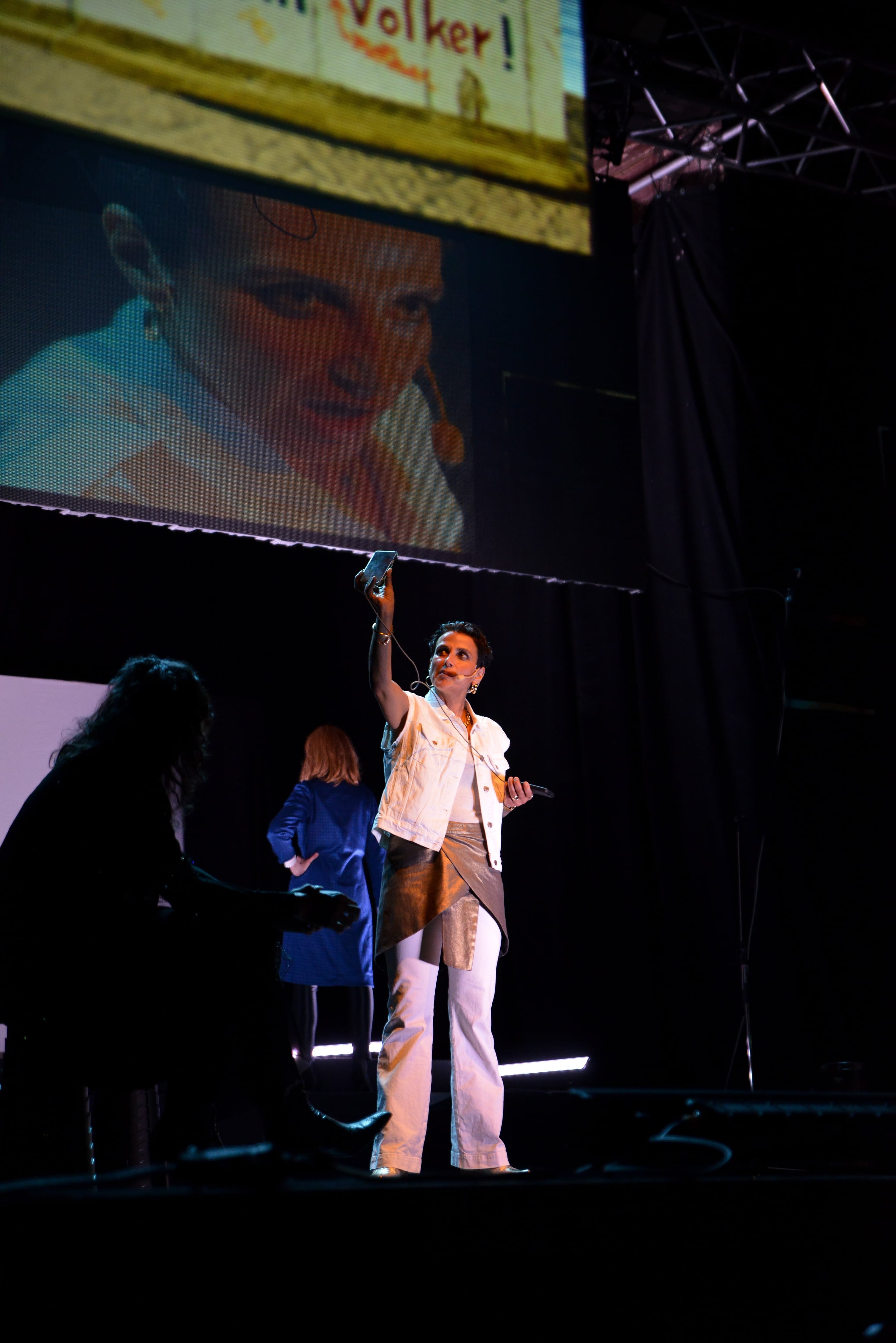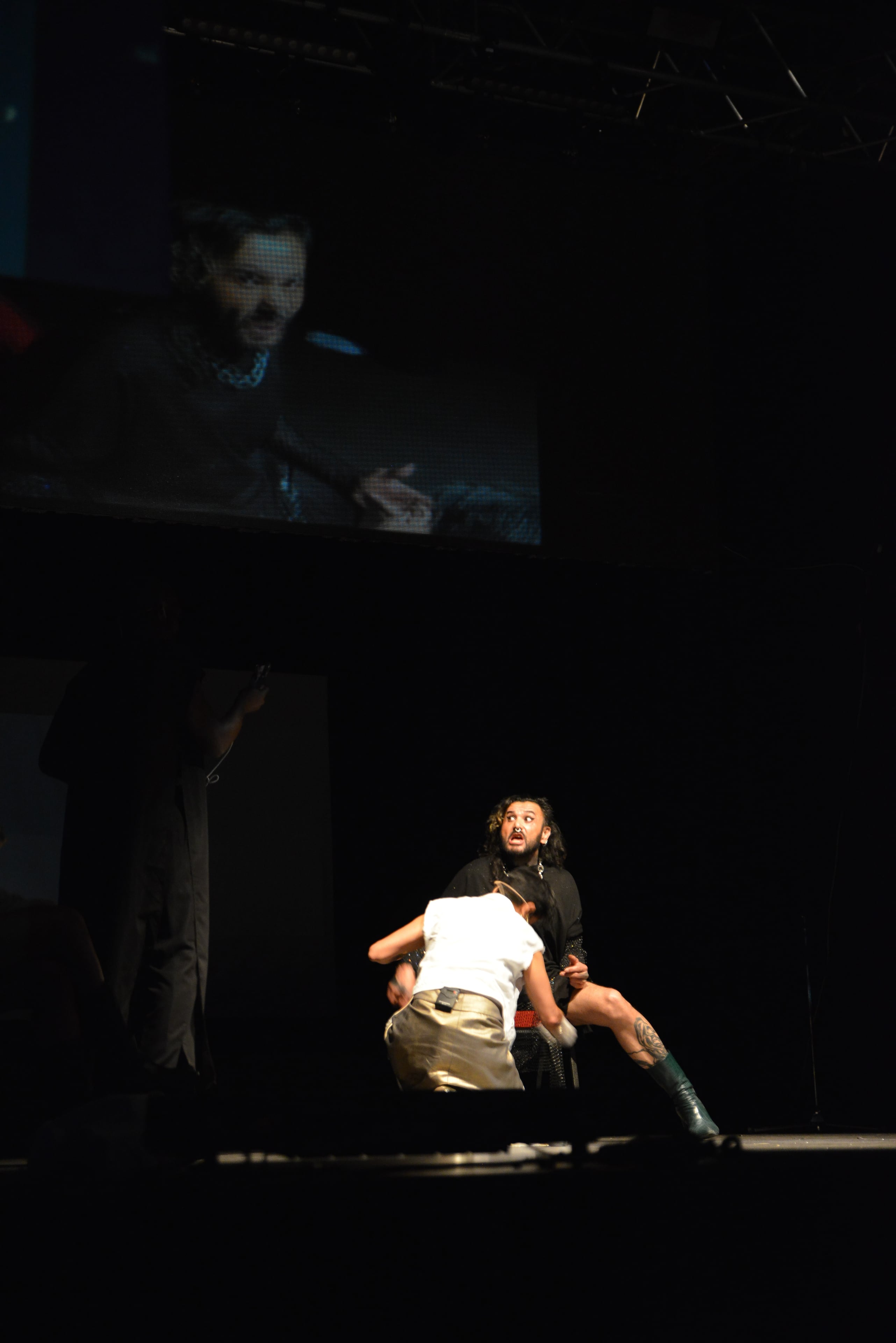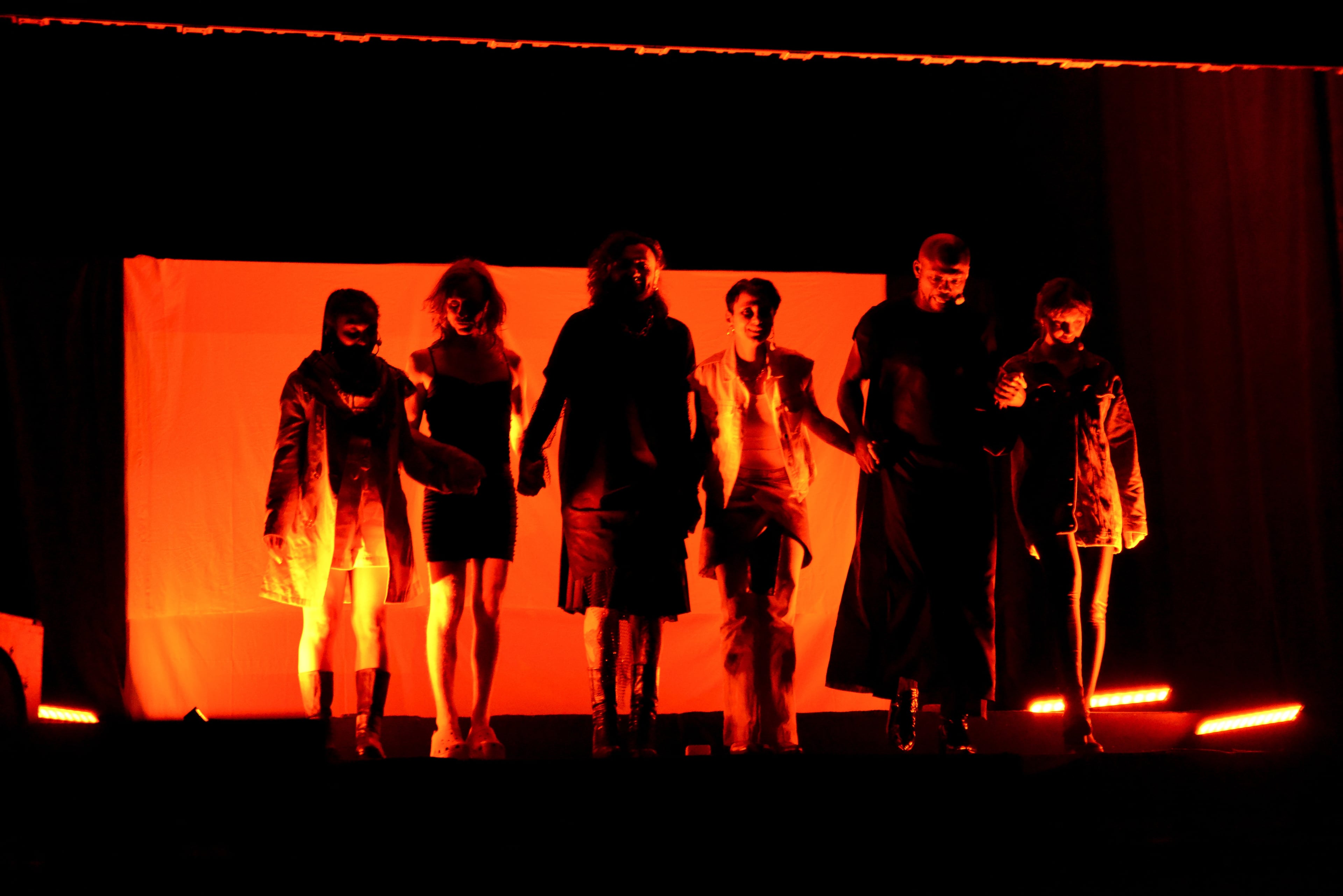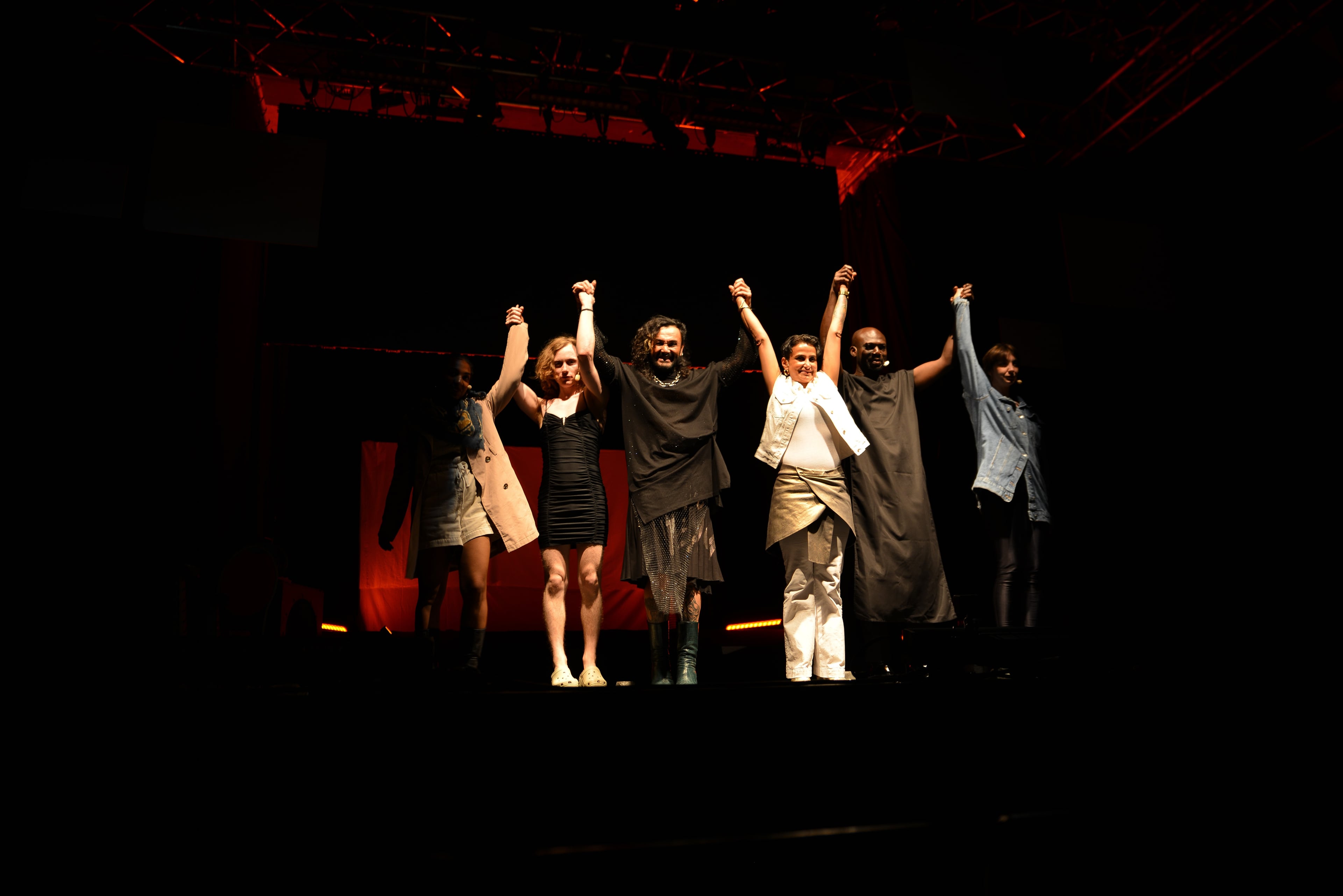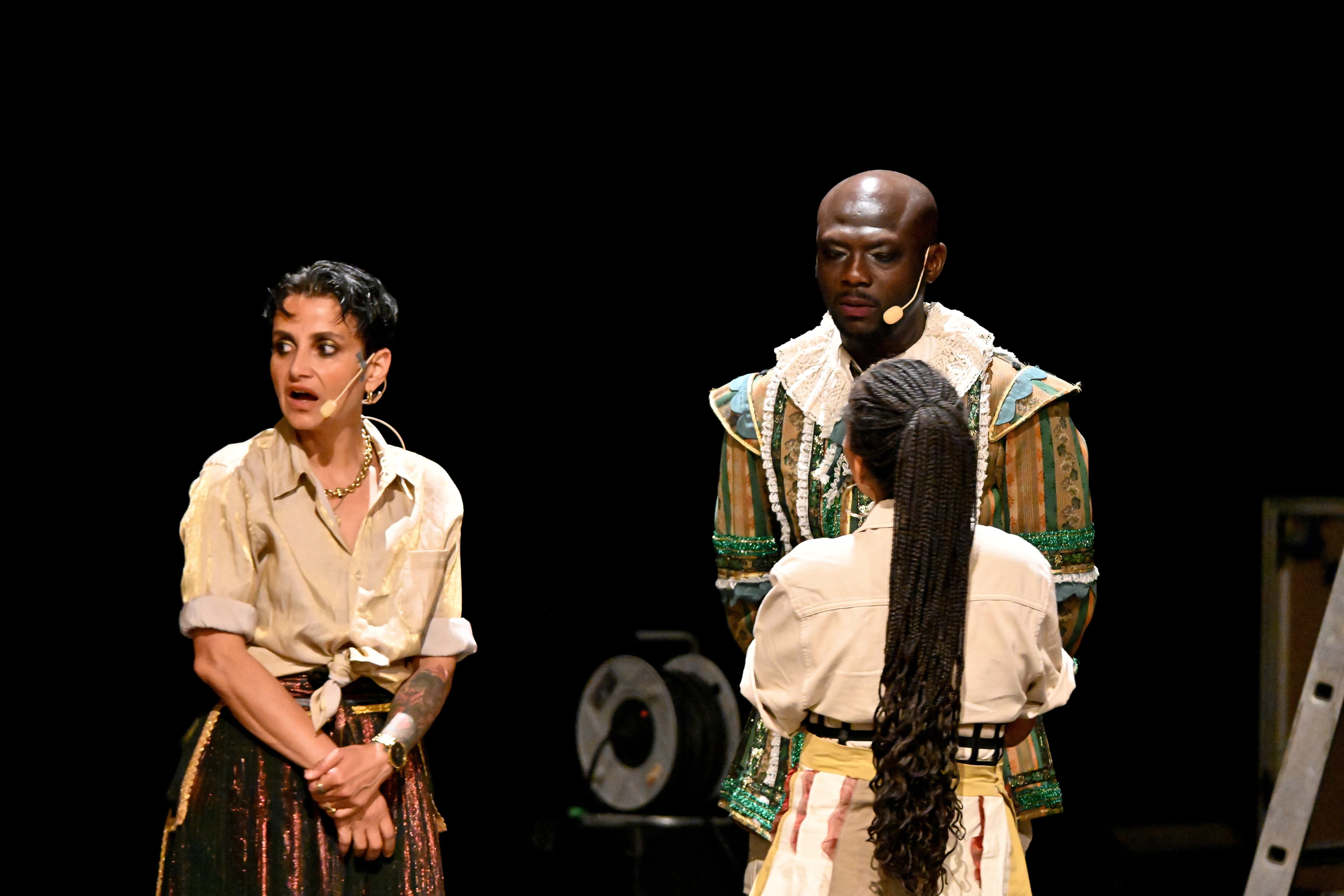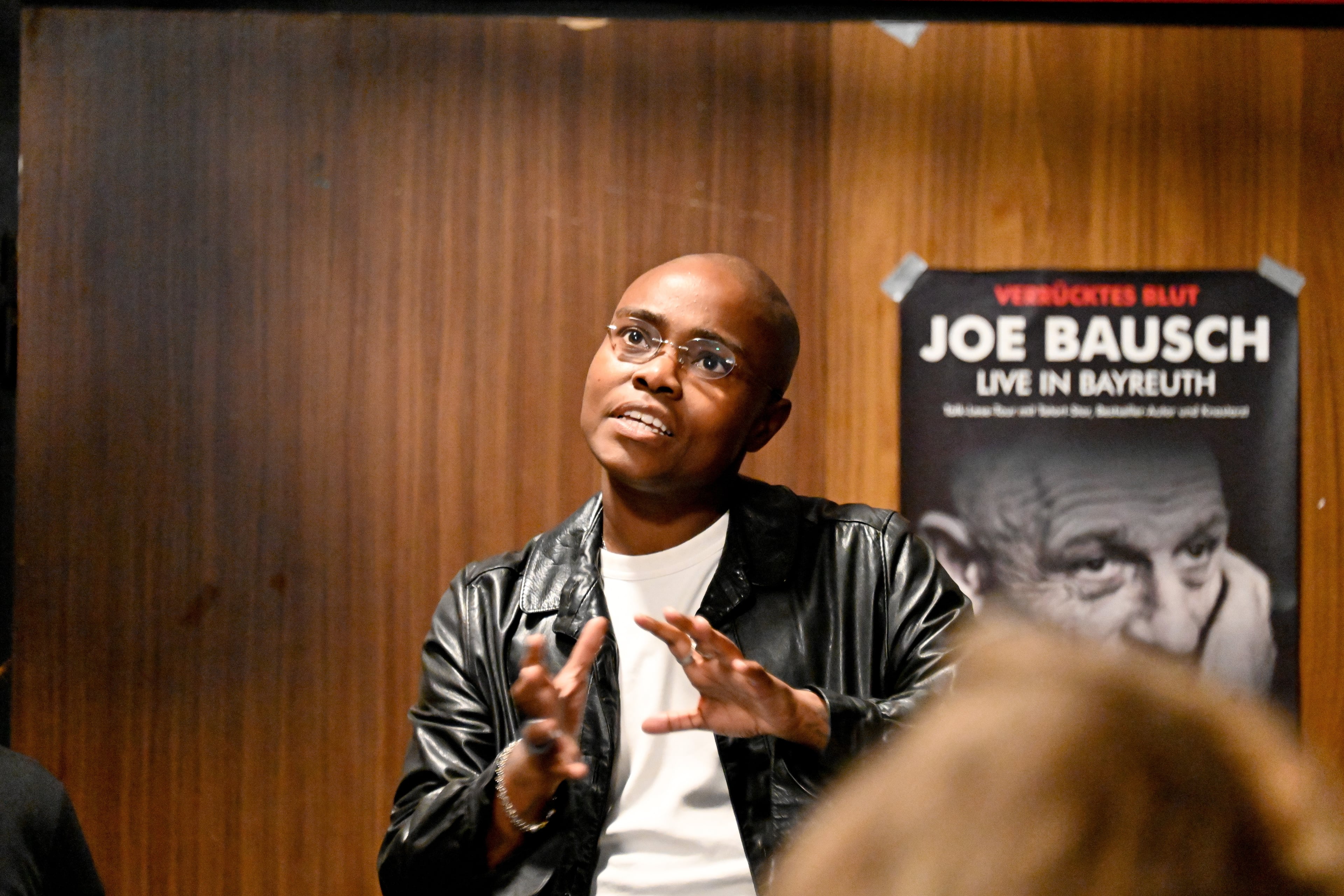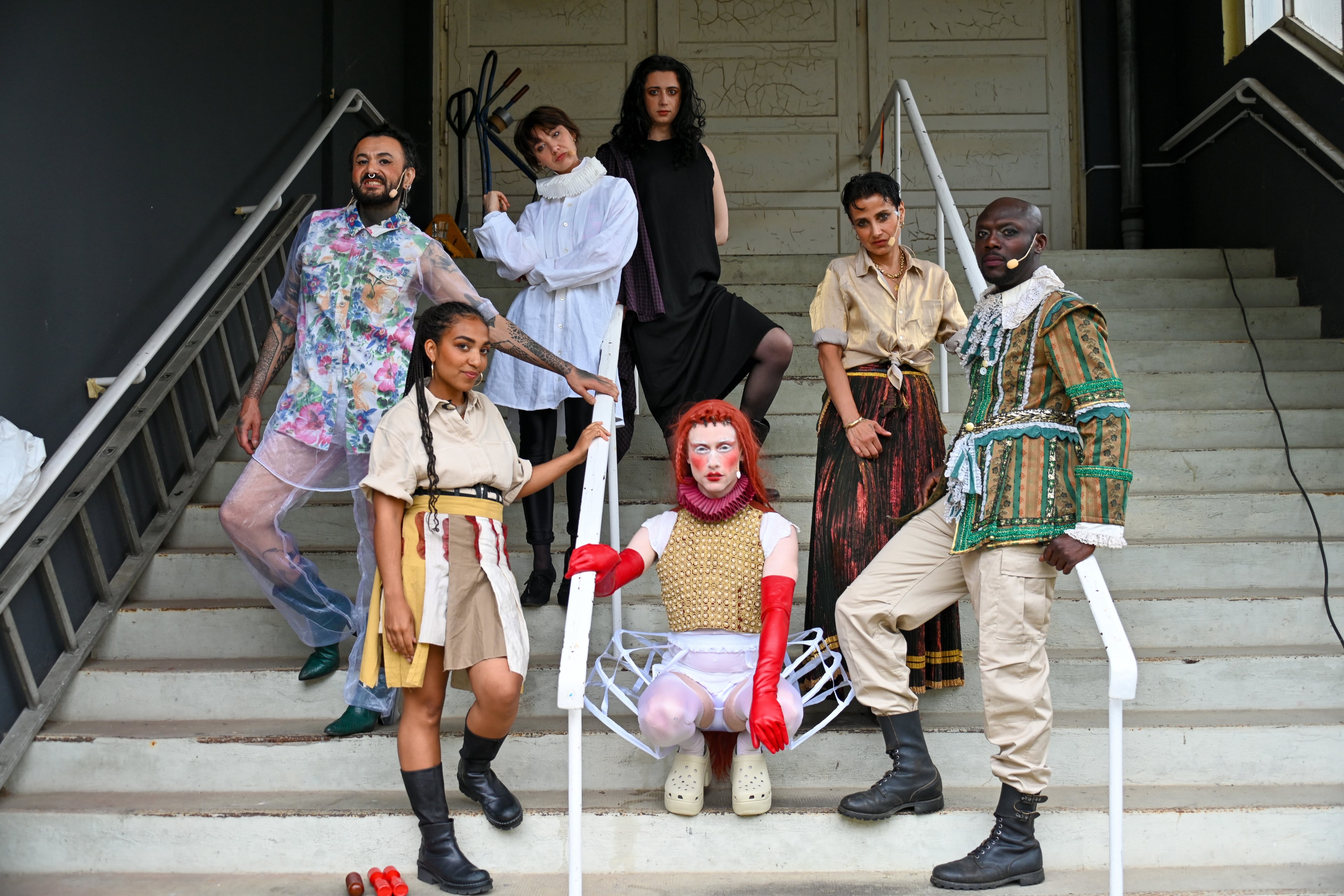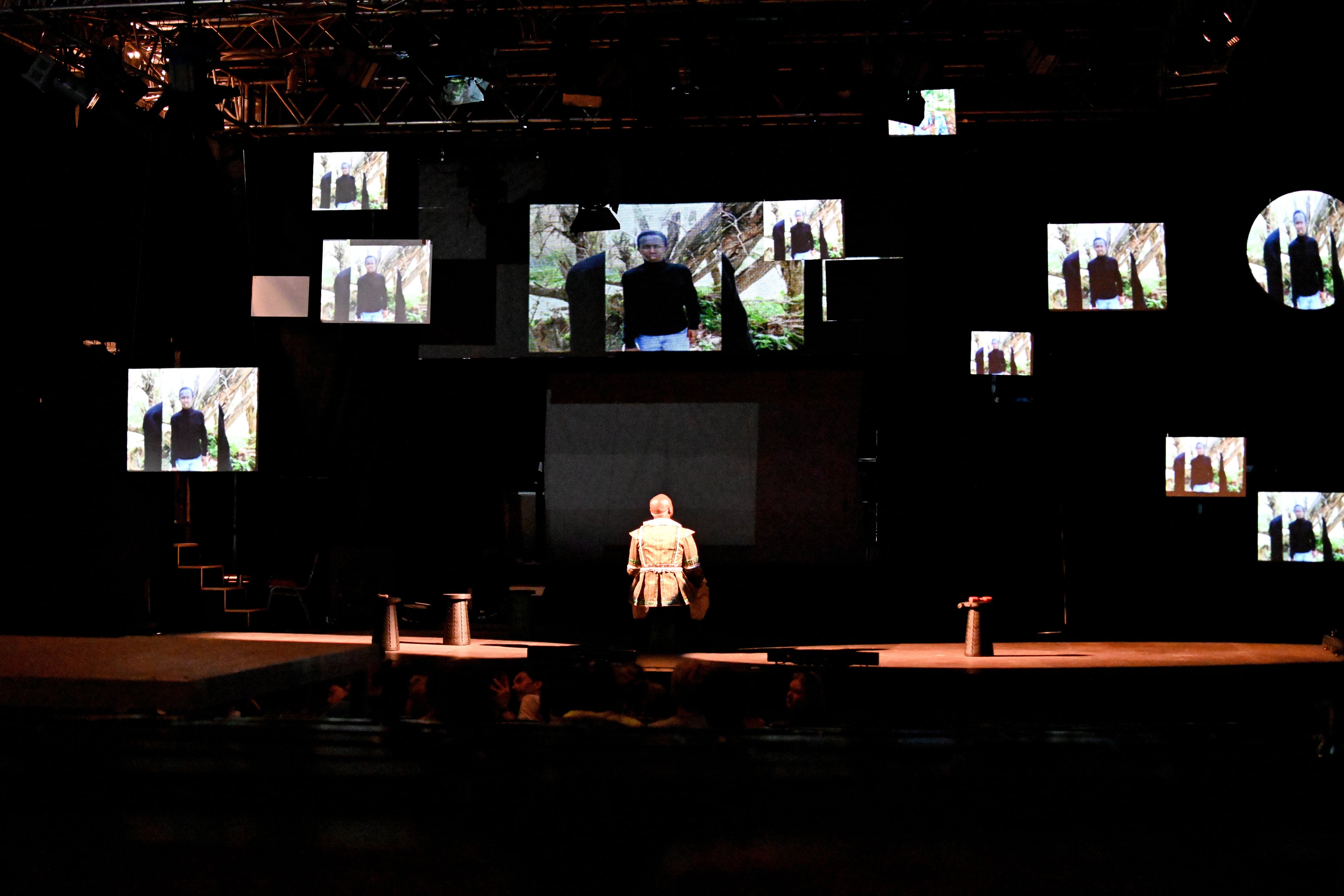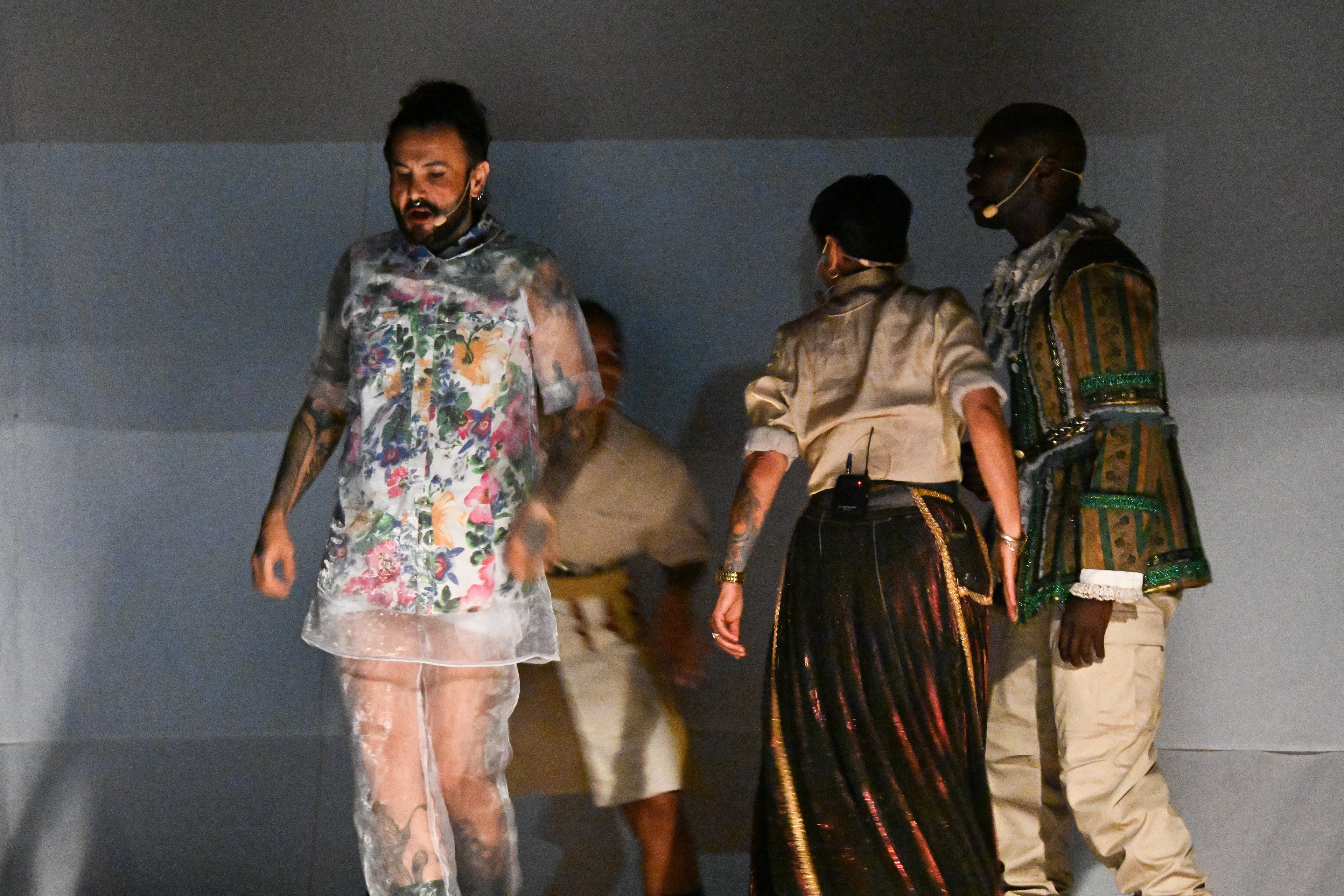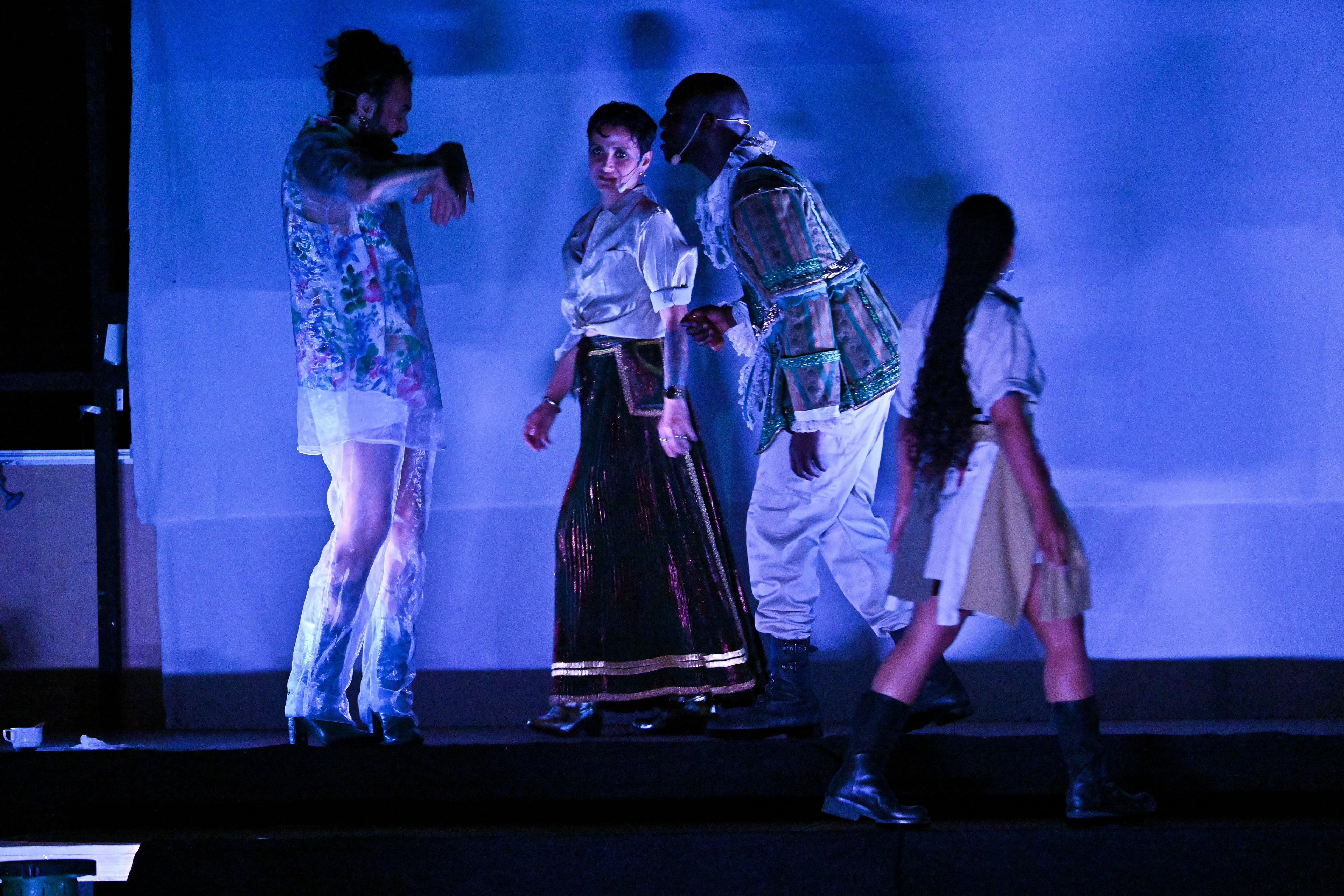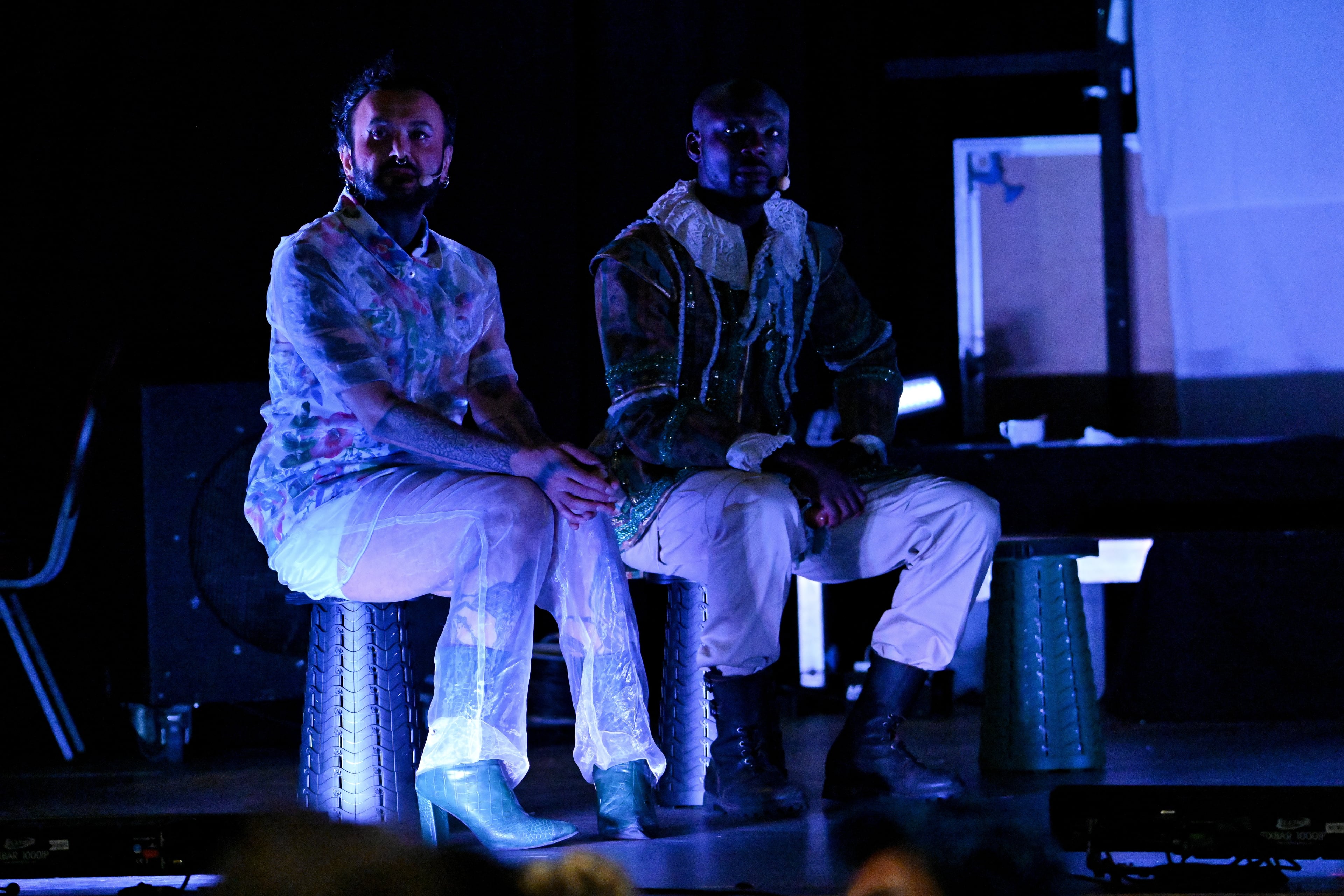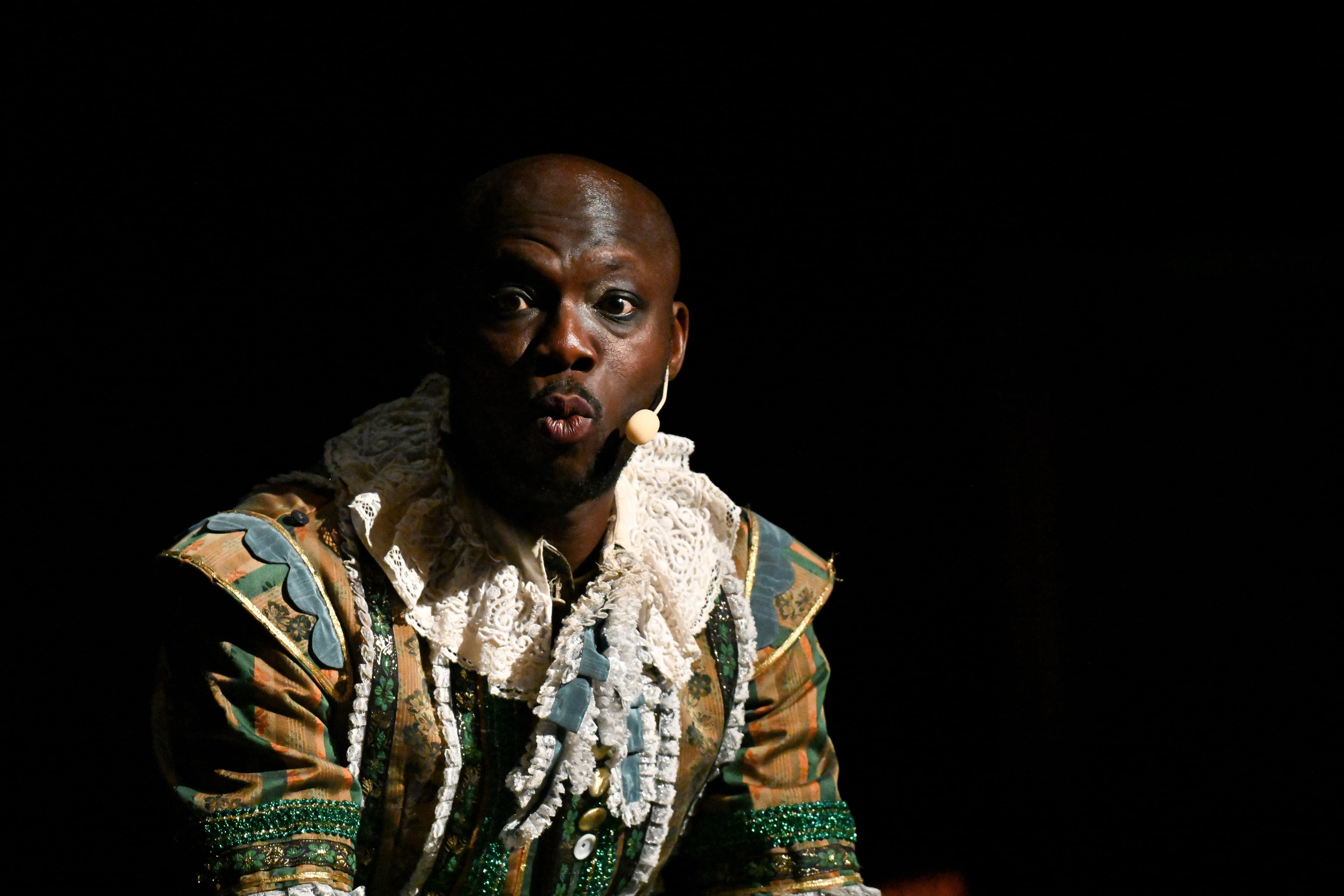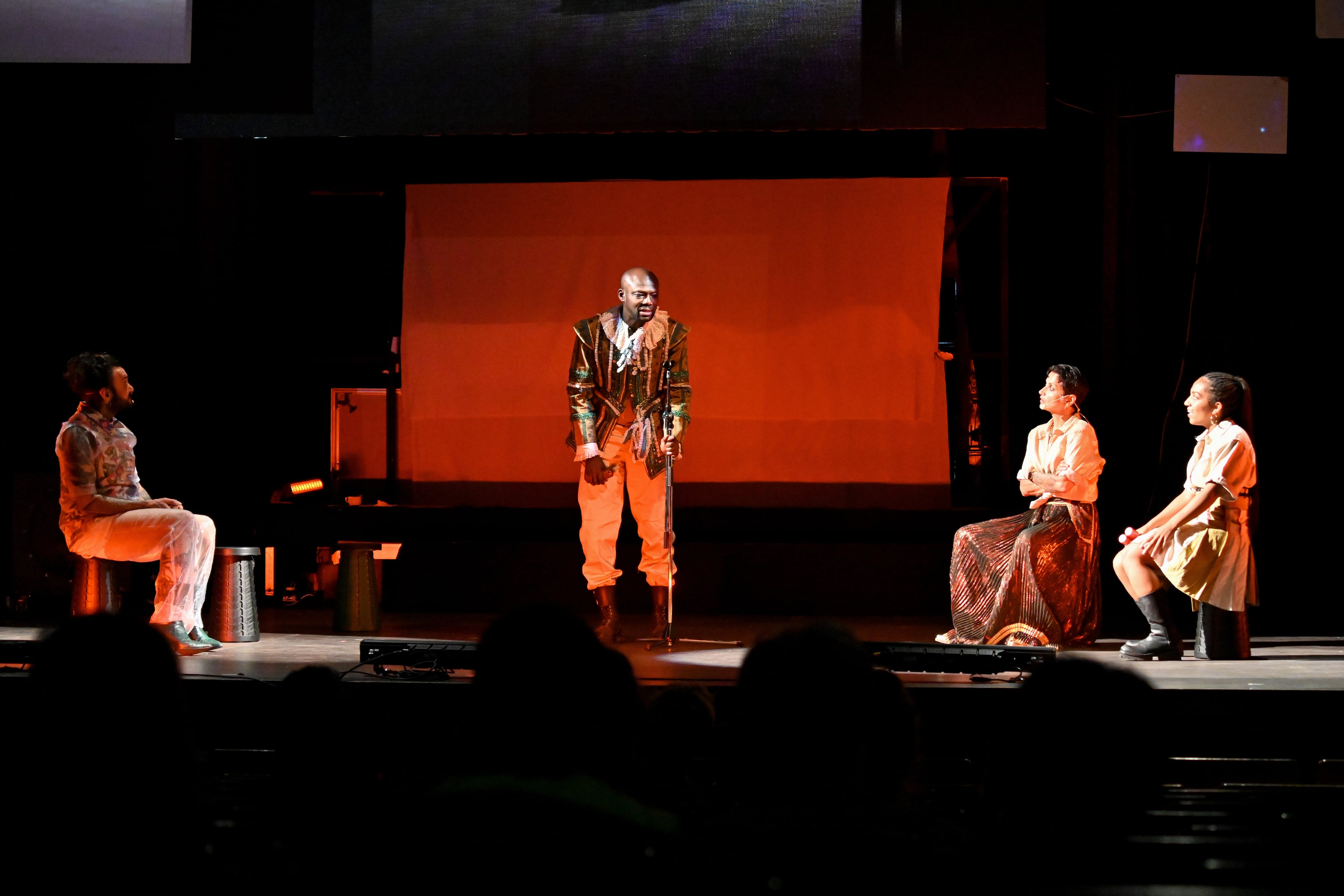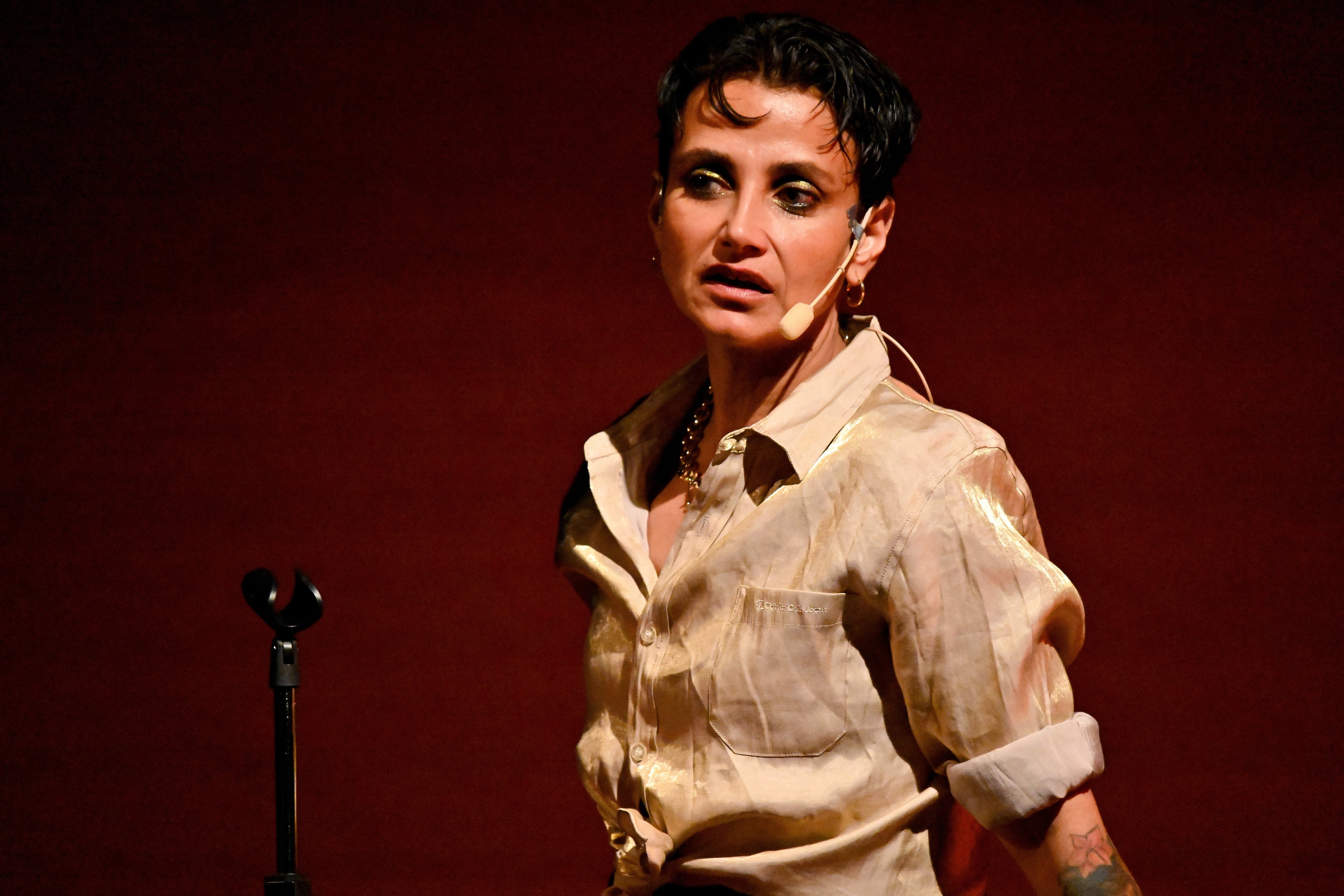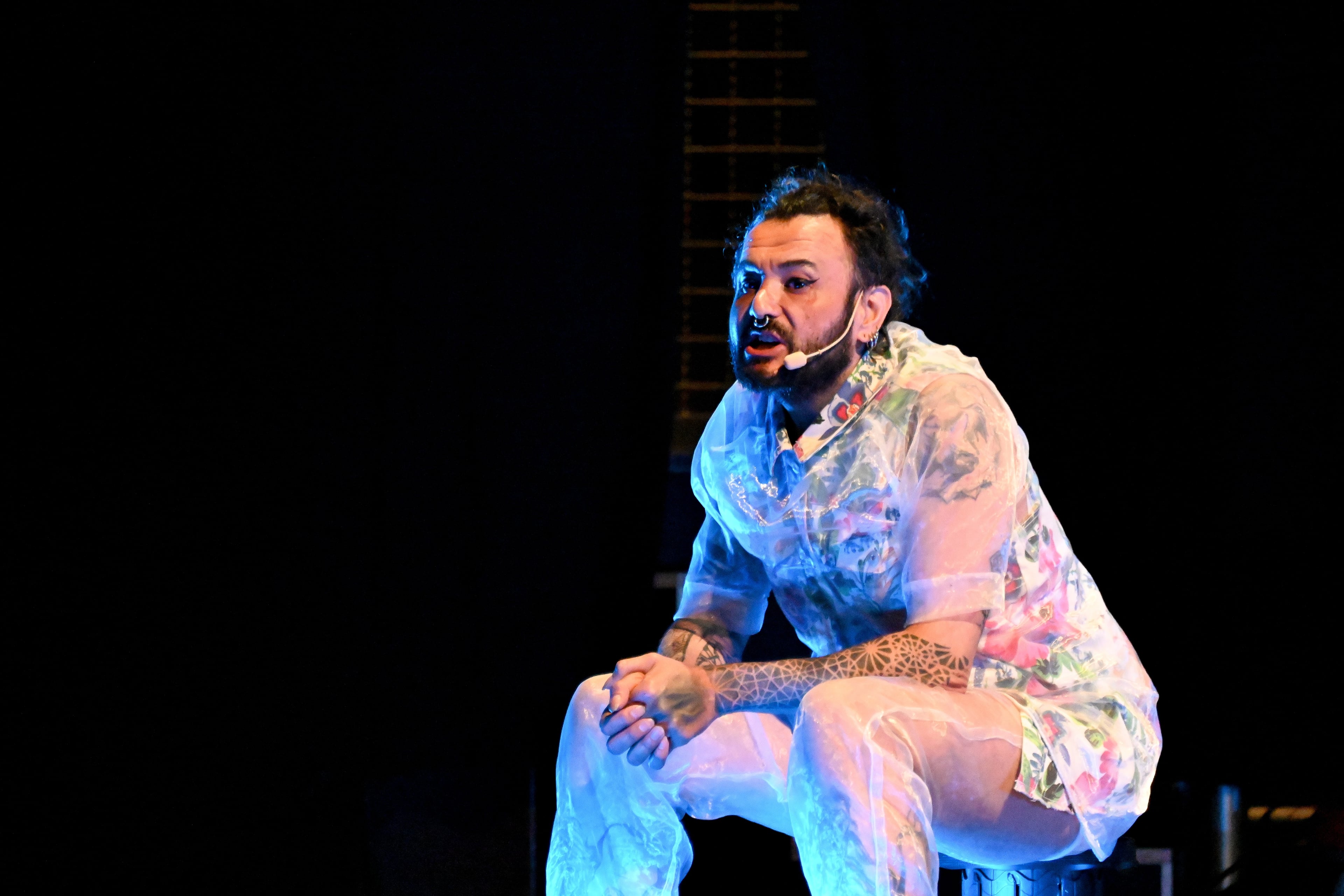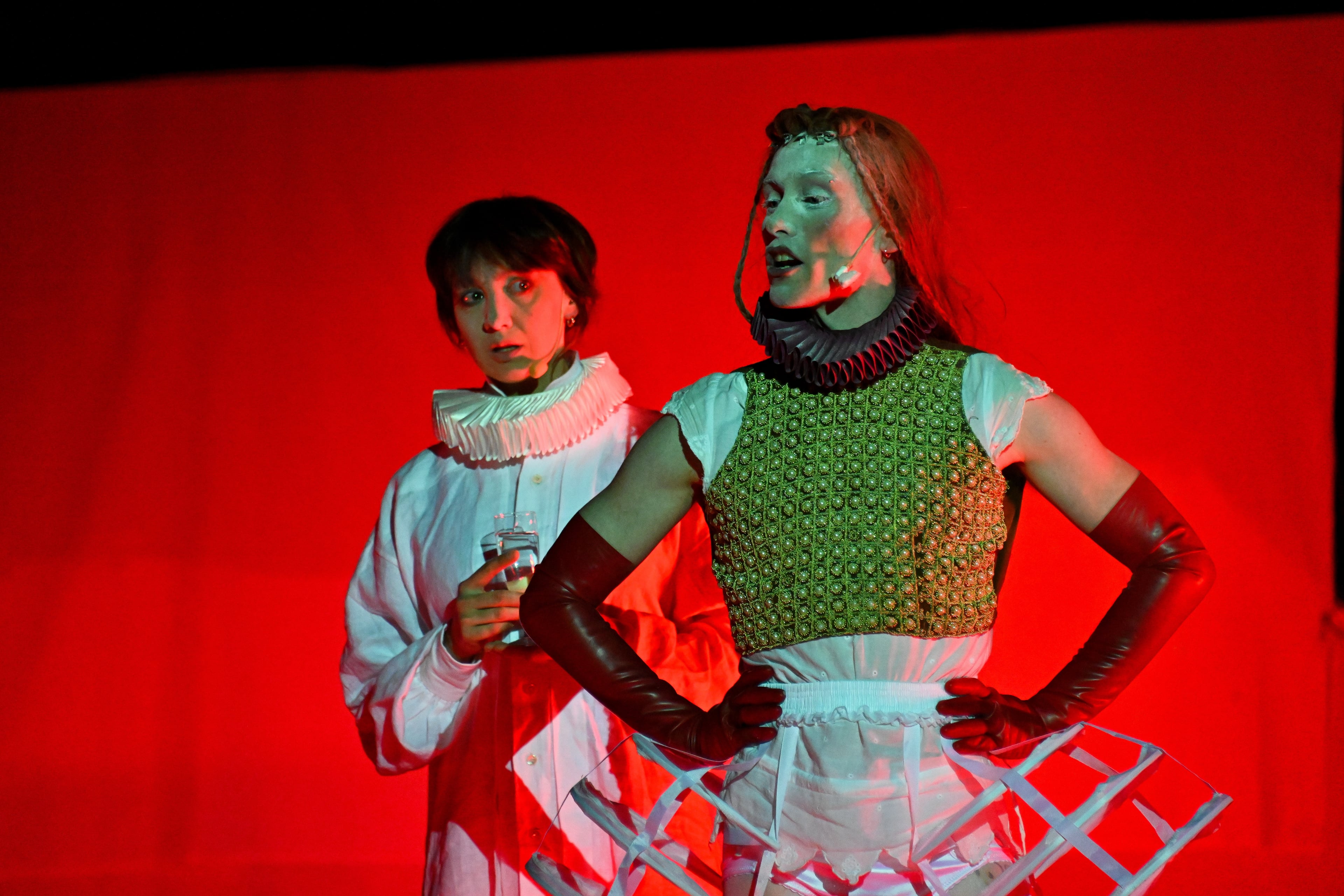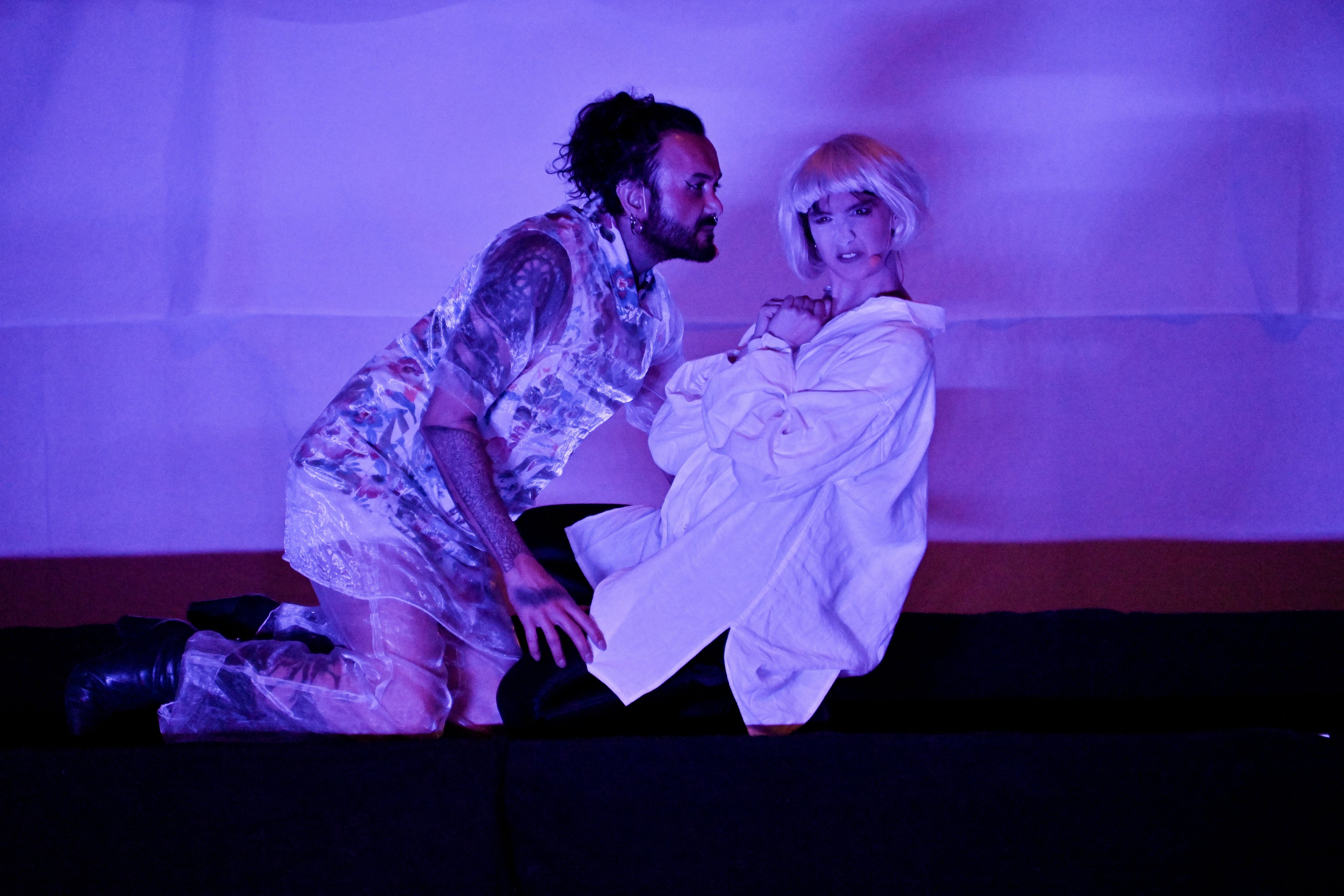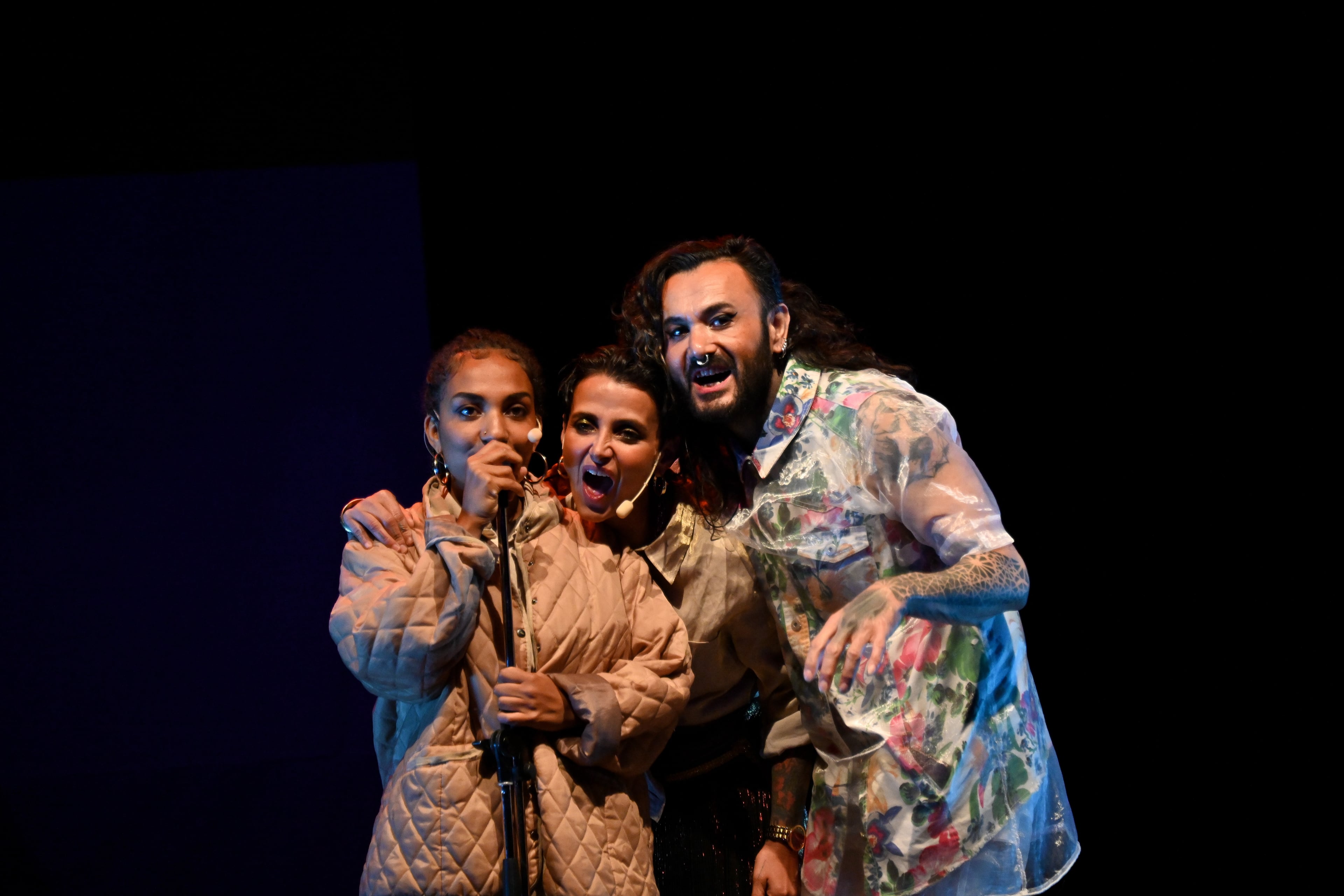News
Aleo Arndt: I speak of me as I am. A Necessary Intervention. A Play by the Shakes:WIR-Production
07.07.2025
The Cluster of Excellence “Africa Multiple. Reconfiguring African Studies” financed a research project on “Travelling Knowledge and Trans*textuality. African Sources in Shakespearean Drama”. Part of its outreach programme was to transfer the research findings into a theatre play. This was realised by the three-lingual play “I Speak of Me as I Am. A Necessary Intervention”. It is about Shakespeare’s criticism of racism and colonialism as well as his adaptation of West African narrations, while also staging the actors’ critical engagement with respective sources, inspirations and limits.
Shakespeare inspired many. But who inspired Shakespeare? It is generally claimed that Shakespeare was only influenced by texts that he could have read - in languages that he knew. In addition to English and Latin, this would be Italian, maybe a bit of French. But Shakespeare is one of the pioneers of modern theater. Even in his childhood, it was common for theater companies to travel from place to place for years with a single play. They were dependent on donations from those who came to the marketplace to see the play. Shakespeare, however, founded The Globe, a permanent theater where people paid admission at the entrance. It was necessary to offer several plays a year. Shakespeare wrote at least 38 plays between 1589 and 1611. He was not only inspired by the classics of European literature, but also absorbed every story he came across, not by chance – but by actively searching for them. Always on the lookout for new tales, he asked travelers about stories they might have heard. Perhaps he himself travelled on a ship? It stands to reason that he also encountered enslaved people from Africa. After all, there are African fairy tales or philosophical-religious texts that left their mark on his work. The West African fairy tale “Adamma and the Beautiful Stranger”, for example, is a text that was adapted by Othello. But Shakespeare was not just a storyteller who looked far beyond European tales.
Shakespeare's works Othello (1604) and The Tempest (1611) are a reflected critique of racism and colonialism. Othello is the first black protagonist on a European stage. All other European playwrights only put black people on stage to mark a white character as evil. In Webster's The White Devil (1612), for example, the scheming protagonist Vittoria is always accompanied by a Romani woman and this is meant to tell the audience from the beginning that Vittoria is dangerous. It's different in Othello. Othello is a very complex and profound character - unlike his counterpart in Cinthio's “Un capitano moro” (1565). In Cinthio's short story, the scheming friend simply says to the black man: “Your wife is cheating on you”. And on he goes, killing his wife Disdemona straight away. The tale ends with the lesson: Never marry a Black man. In Shakespeare's Othello, though, this is different. Othello is presented with psychological depth. Iago, driven by deep racism and hatred of a black man marrying a white woman, has to be an amazing trickster manipulator to convince Othello that Desdemona is cheating on him and lying to him. In the end, Othello kills Desdemona, yes. But this femicide has nothing to do with the fact that he is black. He kills
Desdemona because he is a patriarchally man who fails to communicate well with his wife - just as Iago kills his wife Emilia. Iago’s racism is punished with torture. Ultimately, Shakespeare's tragedy condemns racism and its deathly violence. The Tempest, on the other hand, puts colonial racism on stage to condemn colonialism. Don't think, the play calls out to us, that you can just sail over there and take people's land. Caliban is a freedom fighter who fights against Prospero's colonial violence and makes life so difficult for the colonizer Prospero that he leaves the island again. Prospero and all the other white characters constantly insult Caliban with racist slurs. He was a fish, a monster, an ape, a devil. But how could he be so many things at once? This multitude of labels only makes sense if they are read as an expression of the white colonial gaze. It is crucial to listen to Caliban himself. He is not an animal, not a monster. Caliban is a human being who was robbed of his mother by Prospero and then enslaved by him. That is why Caliban fights Prospero. He longs for freedom and draws his resilience from his attachment to the island and his dreams. He speaks the finest English in blank verse and is unwaveringly resistant.
Such criticism of colonialism is of course not unusual. The people in the Americas, Africa and Asia who were colonized and enslaved resisted it from the very beginning. That's why the sentence “That's just the way it was back then” is completely wrong. However, there was hardly a white person in Europe who resisted racism and colonialism. Shakespeare is one of the few exceptions. How did this come about? Since he knew so many African narrations, it stands to reason that he personally encountered people who were deported and enslaved from Africa - and that he understood how devastating this was. Thus, while Queen Elizabeth and James I send people like Sir Walter Raleigh and Sir Walter Hawkins to carry out colonial conquests and to enslave Africans, Shakespeare held the opposite view. And while Elizabeth I legitimizes these colonial atrocities by claiming that whiteness is the crown of creation - and therefore presents herself in white make-up as virginal, god-sent and superior - Shakespeare writes against this “hype of fairness”: “In the old age black was not counted fair”, says Sonnets 127, “But now is Black beauty's successive heir”. Sonnets 127-144 have gone down in history as the so-called “dark lady” sonnets and to this day it is widely claimed that they praise a brunette white woman. But Shakespeare knew the difference between “dark” and “black”. And yes, his sonnets say: Black is beautiful. The sonnets 127-144 are dedicated to Lucy. Little is known about her, just like so many women of color have been erased by white HIStory. But everything points to the fact that she was enslaved and forced into sex work. Shakespeare met her at the Grays Inn. His critical knowledge of colonialism and racism, his knowledge of African fairy tales and philosophies – she gave it to him. This is not documented anywhere else, and yet it is all plausible. Is he responsible for the fact that her authorship has not been handed down? Or was it erased by those who published his work? Why do Shakespeare's interventions remain so cautious in the end? Was he too afraid of torture in the Tower of London? Why not let the sonnets speak even more clearly of a black woman, why make Caliban's victory over Prospero such a hidden victory - and above all, why let Othello commit femicide after all?
All of these questions were translated dramaturgically into “! Speak of Me as I am. A Necessary Intervention” by Aleo (Susan) Arndt in cooperation with Ife Aboluwade and Cat
Jugravu and a three-term-seminar taught by Arndt. It was directed by MxCat from QUERDOs-collective. It was performed in English, German, and Farsi, while offering translations into German and English via subtitles. Besides staging Cleopatra (Roxi Thiele Dogan), Othello (Elnathan John) and Caliban (Mehrdad Gharbinian), we also staged Lucy (Ruby Engel). Othello was also diversified by integrating via video staging Othellos from the Global South as played by Oche Daniel Abel, Yves B gGolden, Carl Terve, Oki Owo Ocho, Paul Pabloh, Trovania and Elijah Yemoja.
The actors engaged with Shakespeare’s characters, while, particularly in the Prologue and Act II, relating their own biographical journeys, resistance and resilience. This was based on dramaturgical interviews with the actors, who also engaged in co-writing. In complementary fashion Danya Harway and Ännie Krippner played numerous white characters, representing different aspects of white supremacism in English Renaissance, during 1989’s revolutions and subsequent transformations and now. The stage was designed as digital universe and knowledge lab by Noah Osarenren, while music was composed by Trace, costume by Perikles, light by Sol Sebastian Soloranzo and sound b Legalmoney Studio.
The play had its premiere in Berlin’s Ballhaus Prinzenallee. It was sold out weeks ahead and being applauded with standing ovations. On 6 and 7 June 2025 it was also staged at Bayreuth’s Reichshof-theatre under the title “Shakes:Wir. A Necessary Intervention”, being framed by a kick-off workshop by a student group as based on a three-term seminar run by Aleo (Susan) Arndt. The play will be shown throughout 2025/26 at Ballhaus Prinzenallee and it will keep adjusting to research, feedback and contemporary political developments.


